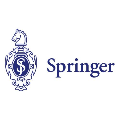In recent years, long-term evolution (LTE) and 5G NR (5th Generation New Radio) technologies have showed great potential to utilize Machine Learning (ML) algorithms in optimizing their operations, both thanks to the availability of fine-grained data from the field, as well as the need arising from growing complexity of networks. The aforementioned complexity sparked mobile operators' attention as a way to reduce the capital expenditures (CAPEX) and the operational (OPEX) expenditures of their networks through network management automation (NMA). NMA falls under the umbrella of Self-Organizing Networks (SON) in which 3GPP has identified some challenges and opportunities in load balancing mechanisms for the Radio Access Networks (RANs). In the context of machine learning and load balancing, several studies have focused on maximizing the overall network throughput or the resource block utilization (RBU). In this paper, we propose a novel Clipped Double Q-Learning (CDQL)-based load balancing approach considering resource block utilization, latency and the Channel Quality Indicator (CQI). We compare our proposal with a traditional handover algorithm and a resource block utilization based handover mechanism. Simulation results reveal that our scheme is able to improve throughput, latency, jitter and packet loss ratio in comparison to the baseline algorithms.
翻译:近年来,长期演进(LTE)和5G NR(第五代新无线电台)技术显示了利用机器学习(ML)算法优化其运作的巨大潜力,这既归功于实地提供精细数据,也归功于网络日益复杂的需要,上述复杂性促使移动运营商关注如何通过网络管理自动化减少其网络的资本支出(CAPEX)和运行(OPEX)支出。NMA属于自我组织网络(SON)的伞状之下,其中3GPP查明了无线电接入网络工作量平衡机制的一些挑战和机遇。 在机器学习和工作量平衡方面,一些研究侧重于尽量扩大整个网络的吞吐量或资源区块利用(RBU)。 在本文中,我们建议采用新的精简的双倍学习(CDQL)负担平衡法,考虑资源区块利用、通气和频道质量指标(CQI),我们将我们的提案与传统的交接算算法和基于资源组合平价的转换方法进行比较。





